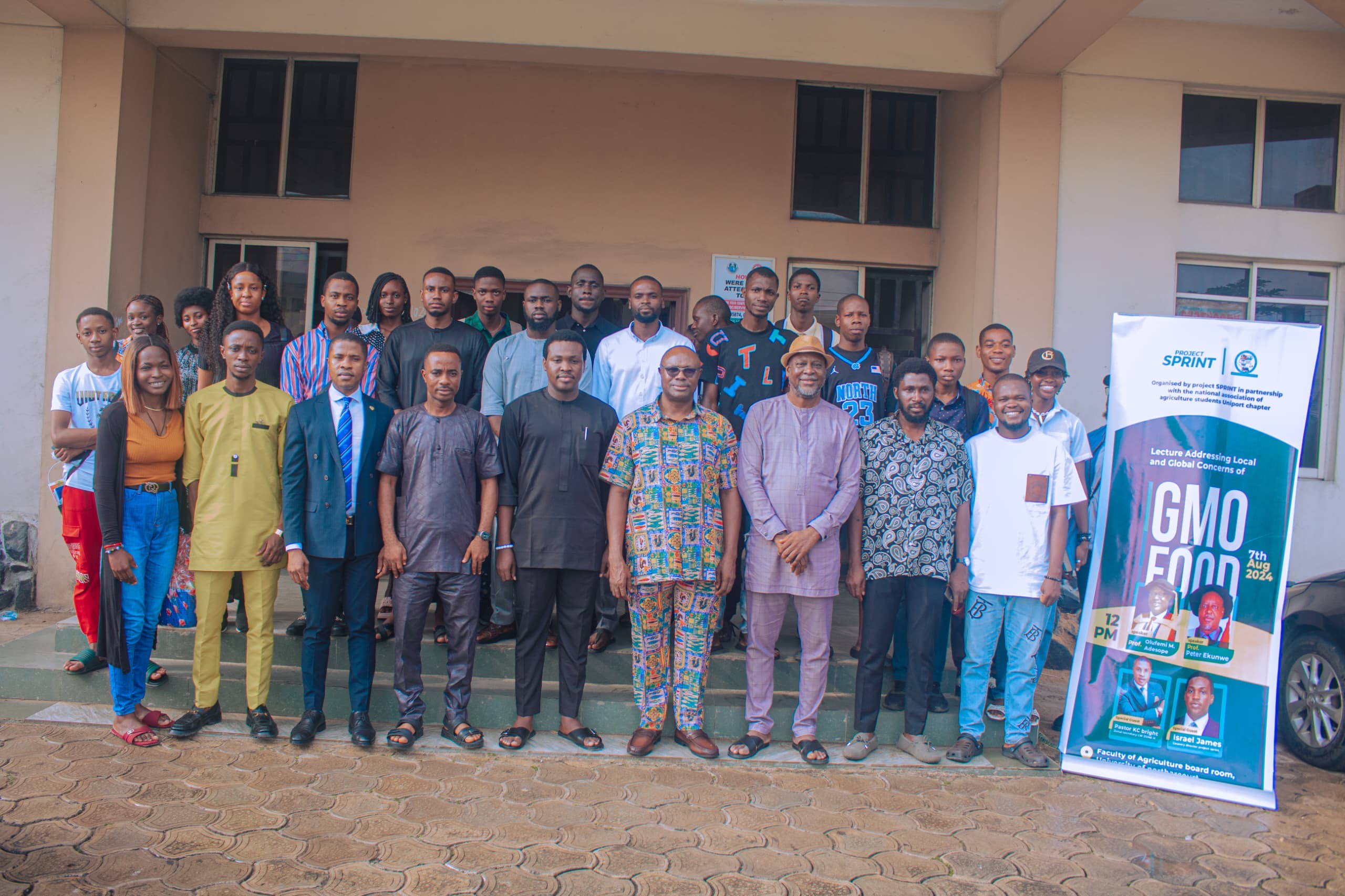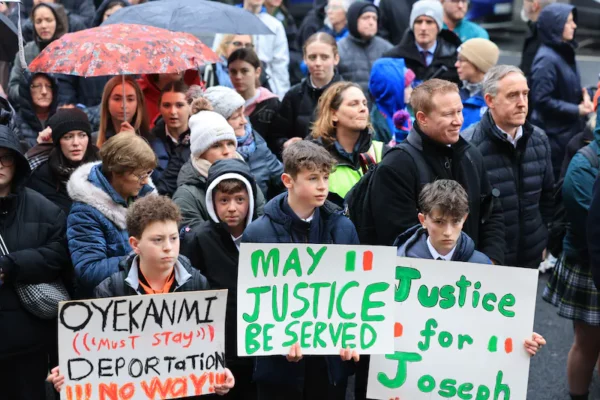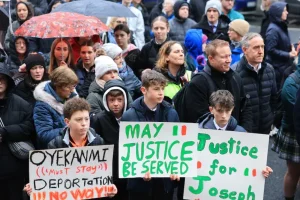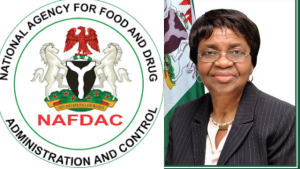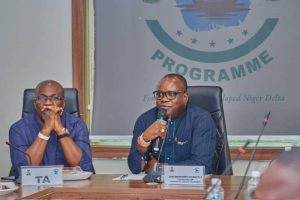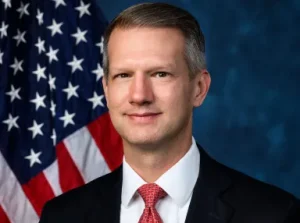GMO Food: Project Sprint Hosts Lecture Addressing Local and Global Concerns
Public Lecture Explores Local and Global Concerns of GMO Foods at Uniport
Port Harcourt — In a significant event addressing the pressing concerns surrounding genetically modified organisms (GMOs), a public lecture organized by Project SPRINT in collaboration with the National Association of Agriculture Students, University of Port Harcourt (Uniport) Chapter, was held at the Faculty of Agriculture. The lecture brought together prominent speakers, including Israel James, Country Director of Project SPRINT; Prof. Peter Ekunwe; Prof. Olufemi M. Adesope; and Pastor KC Bright, Zonal Secretary of BLW Zone H, also known as Christ Embassy.
The Legislative Battle Against GMOs: A Bio Weapon?
Israel James, the first speaker and Country Director of Project SPRINT, initiated the lecture by diving into the legislative efforts currently underway in Nigeria. He revealed the ongoing discussions in the National Assembly to potentially ban the commercialization of GMOs. James emphasized the importance of developing a regulatory framework to not only address the concerns related to GMOs but also to promote sustainable agricultural practices across the country.
In his speech, James described GMOs as a “bio weapon,” underscoring the potential risks they pose if not adequately regulated. He stressed the critical role that professors and academics play during such pivotal times, urging them to guide the National Assembly in making informed policy decisions. Furthermore, he called on students to engage actively in the policy-making process, advocating for change and supporting initiatives that align with sustainable development.
Empowering Research and Development
Prof. Peter Ekunwe, a key speaker at the event, focused on the vital need for research institutes to have the autonomy and resources necessary to conduct their work effectively. He argued that for Nigeria to advance in the field of biotechnology and GMOs, the Federal Government (FG) must prioritize funding for research institutes. By empowering these institutions, the country can foster innovation, develop locally relevant solutions, and ensure that any advancements in GMOs are thoroughly vetted and safe for public consumption.
GMOs: Understanding the Science and Addressing the Myths
Prof. Olufemi M. Adesope, from the Department of Agricultural Extension and Development Studies at Uniport, provided a comprehensive overview of GMOs, dispelling common myths and addressing public concerns. He explained that GMOs involve the modification of plants, animals, or microorganisms through genetic engineering techniques to introduce beneficial traits such as pest resistance, improved nutritional content, or increased crop yields.
Prof. Adesope emphasized that GMOs undergo rigorous safety assessments before they are approved for human consumption. These assessments are conducted by reputable national and international regulatory bodies, including the FDA, EFSA, and WHO, which evaluate potential allergenicity, toxicity, and nutritional changes. He pointed out that the scientific consensus overwhelmingly supports the safety of GMO foods, with organizations like the National Academy of Sciences and the World Health Organization affirming their safety.
However, Prof. Adesope also acknowledged the importance of ongoing research and continuous monitoring to ensure the long-term safety of GMOs. He advocated for greater transparency in the development, testing, and regulation of GMOs, as well as public education campaigns to demystify the science behind them.
Youth Participation in Policy-Making: A Call to Action
The final speaker, Pastor KC Bright, Zonal Secretary of BLW Zone H, delivered a powerful message on the role of youth in shaping government policies, particularly concerning GMOs. He highlighted the critical need for youth participation in the political and policy-making processes, asserting that students have the potential to profoundly influence the direction of national and global policies.
Pastor Bright emphasized that youth engagement is essential for the enhancement of democratic processes and the promotion of social change. He called on students to overcome barriers such as lack of access and socio-economic constraints, and to actively participate in policy discussions. By doing so, they can advocate for progressive policies that address contemporary challenges and promote social justice.
Conclusion: The Path Forward
The lecture concluded with a consensus among the speakers on the need for a balanced approach to GMOs. While recognizing the potential benefits of GMOs in addressing food security and agricultural challenges, the speakers stressed the importance of strict regulation, ongoing research, and public education. They called for the integration of GMOs into a broader strategy of sustainable agriculture, which includes organic farming practices, crop rotation, and integrated pest management.
Also Read: Nigerian woman, Buki Adeyemo becomes CEO of famous mental health trusts in England
As the debate on GMOs continues both locally and globally, the lecture served as a crucial platform for raising awareness, fostering dialogue, and encouraging informed participation from all stakeholders, especially the youth, in shaping the future of food and agriculture in Nigeria.
